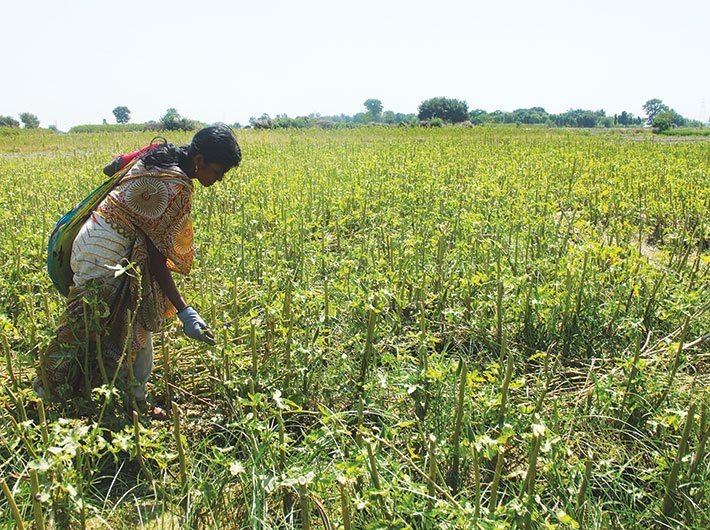A draft model law on contract farming is expected to be ready this month and it promises to protect farmers from price volatility and will ensure guaranteed price for their produce.
“The final model Act will serve as a guide for states to bring required legislation on contract farming. In fact, many states including Uttar Pradesh have shown eagerness in adopting it as early as possible,” reported
Times of India quoting a member of the committee that is working on the draft.
"Idea of the contract farming law is to protect farmers from price volatility, particularly in perishable items. Such a law will protect farmers from market fluctuations as it will ensure assured and better price of agricultural and horticultural produce to them through advance agreements," the official added.
Finance minister Arun Jaitley had spoken about contract farming in his budget speech.
“A model law on contract farming is to be prepared and circulated among the States for adoption,” is mentioned in the 2017
budget.
Niti Aayog has been working on a model contract farming law to connect farmers with the food processing industry.
“Niti Aayog is preparing a model contract farming law. That would connect farmers to the food processing industry,” Niti Aayog vice-chairman Arvind Panagariya said in a question and answer (Q&A) on Budget 2017-18 on Facebook, reported
The Mint.
According to the contract, the farmer is required to plant the contractor’s crop on his land, and to harvest and deliver to the contractor a quantum of produce, based upon anticipated yield and contracted acreage. This could be at a pre-agreed price. Towards these ends, the contractor supplies the farmer with selected inputs, including the required technical advice, said a report in SPICE that is published by the director general, National Institute of Agricultural Extension Management.
Thus, the contractor supplies all the inputs required for cultivation, while the farmer supplies land and labour. However, the terms and nature of the contract differ according to variations in the nature of crops to be grown, agencies, farmers, and technologies and the context in which they are practiced, said the
report.
But, Jayshree Sengupta, a senior fellow, working with Observer Research Foundation’s (ORF) Economy and Development programme, has sounded a note of caution with regard to contract farming.
Sengupta wrote: “Problems arise in the case of very small and marginal farmers. They may not be roped in for this form of farming because companies may want a particular size of the crop which small farmers with their small parcels of land may not be able to produce. So, this will leave out the most vulnerable farmers from the ambit of corporate farming.”
“To make contract farming inclusive, farming groups like cooperatives should be encouraged. Sometimes, however, small farmers are picked up because there is benefit of low cost of production as these farmers have access to cheaper family labour who work more conscientiously than hired labour” she
added.
